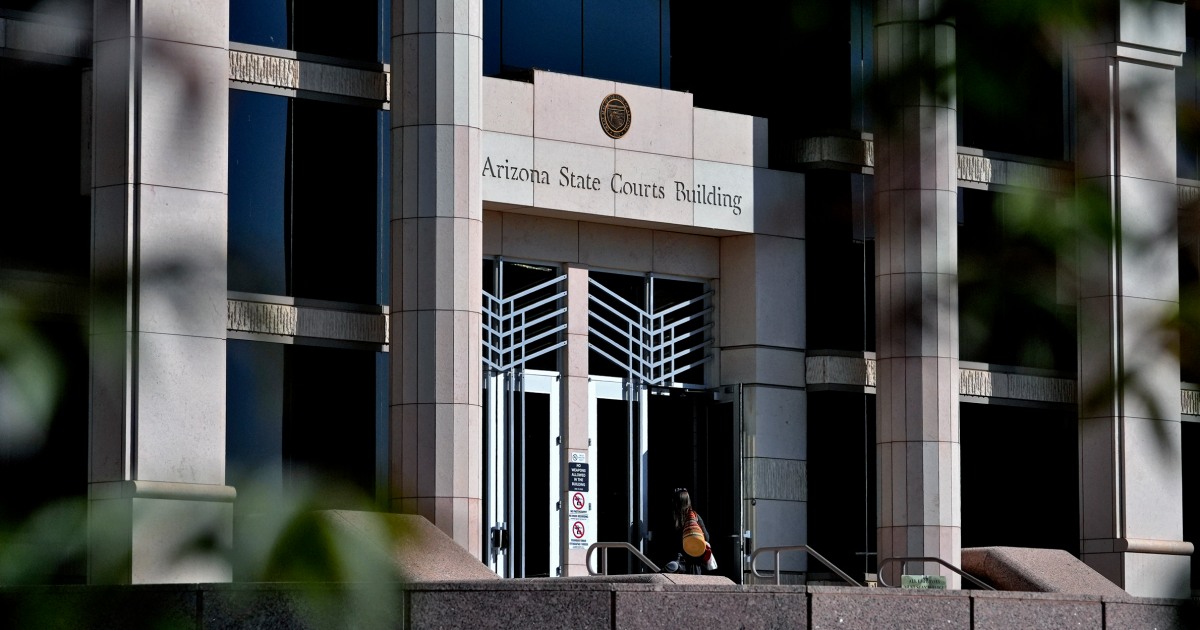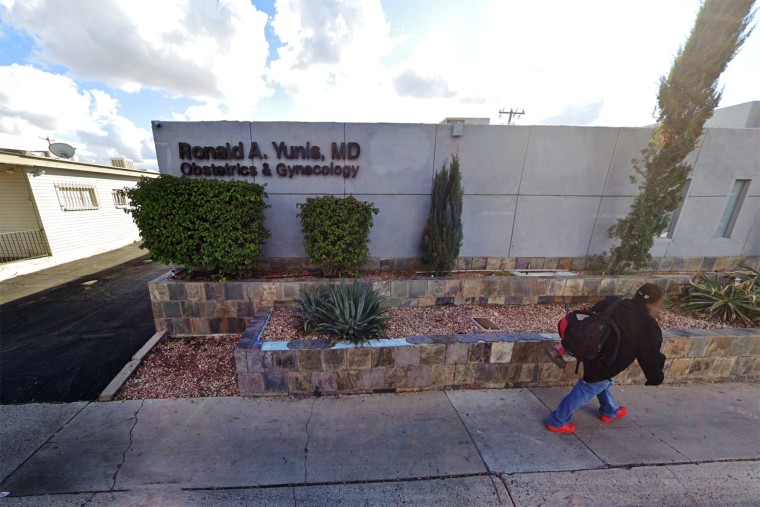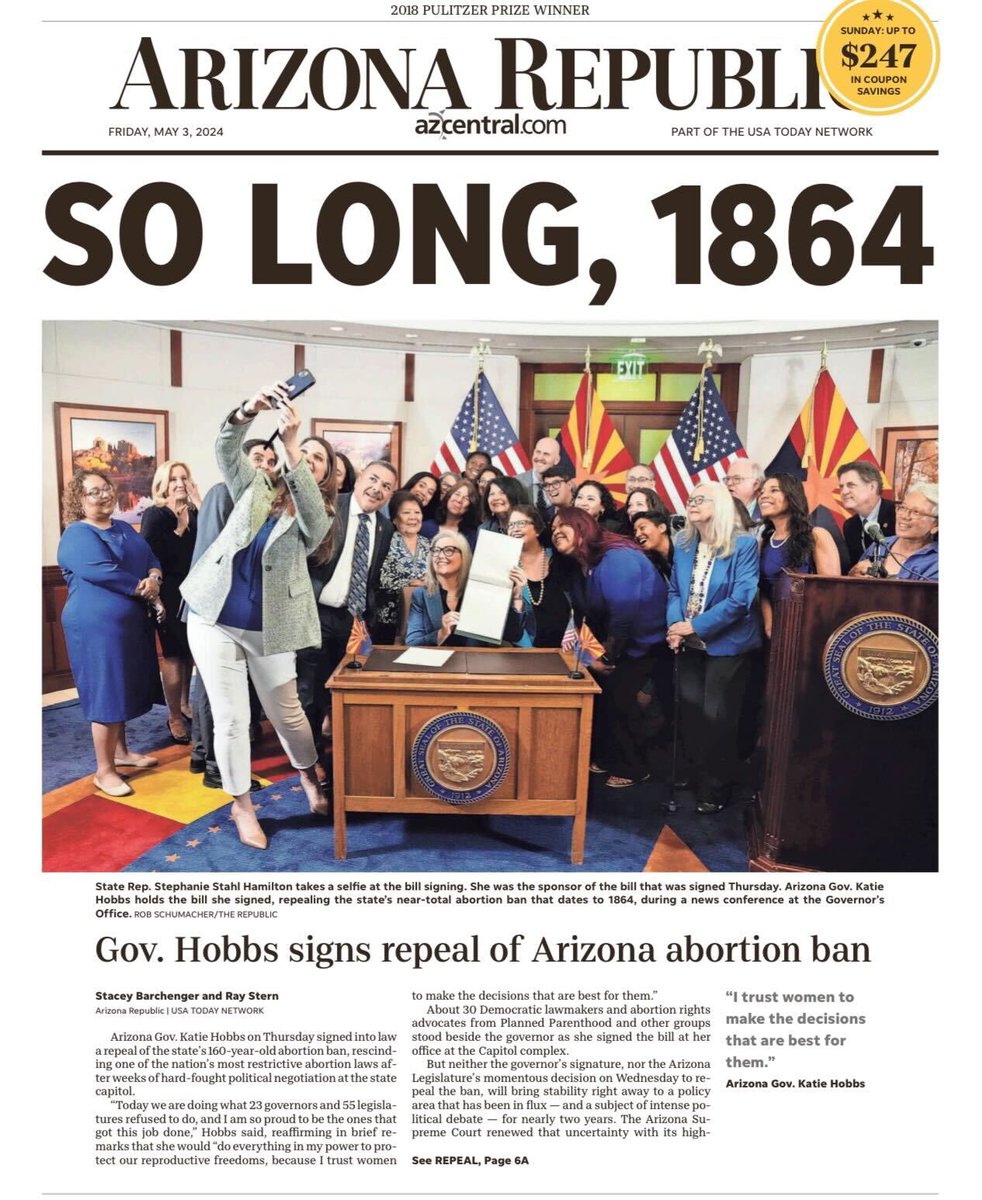
‘I’m here to get an abortion’: Arizona women dodge protesters before the window closes
In weeks, an 1864 law is set to drastically change the abortion landscape in the state, which currently allows the procedure in the first 15 weeks of pregnancy.
‘I’m here to get an abortion’: Arizona women dodge protesters before the window closes
In weeks, an 1864 law is set to drastically change the abortion landscape in the state, which currently allows the procedure in the first 15 weeks of pregnanc
April 13, 2024, 5:00 AM EDT
By Char Adams
PHOENIX — Jordan Johnson, 29, was one of several patients who waded through a half dozen anti-abortion activists on Thursday while making her way into the Acacia Women’s Center. Just two days after the state’s Supreme Court ruled that an 1864 abortion ban was enforceable, the activists were outside the clinic, yelling at women not to go in and running up to cars entering the parking lot.
“Walking past those guys was very angering and emotional,” Johnson told NBC News just before her appointment for an abortion. She responded to the activists with an expletive-laden demand to leave her alone. “If they’re going to yell things at me, I’m not holding back.”
Johnson was at the clinic to see Dr. Ronald Yunis, a long-time OB-GYN. Just outside his office, protesters stood on the sidewalk with large, red signs displaying Yunis’ name and face, alleging that the doctor “kills 150 innocent babies here every month.”
On Tuesday, the state’s high court ruled in favor of an 1864 policy that outlawed abortion from the moment of conception, with an exception to save the woman’s life. It made abortion a felony punishable by two to five years in prison for anyone who performed an abortion or helped a person obtain one. Tuesday’s decision effectively reverses a lower court’s ruling that held that a recent 15-week ban superseded the law.
Even with pro-abortion-rights protests being held across the state, an effort to put a constitutional amendment to protect abortion rights on Arizona’s November ballot, and vows from elected officials to thwart the ruling, patients who spoke to NBC News said they were disappointed in the state’s failure to protect abortion rights, and are making plans for an uncertain future.

“It is absolutely heartbreaking to know that there are so many women who are going to hurt themselves or come to other means because they can’t medically get one the way they should,” Johnson said. She added that she plans to get her tubes tied after this procedure, understanding that abortion may no longer be accessible to her in Arizona. “I’m here to get an abortion because I think [being pregnant] threatens my life because of how sick it makes me and I can’t do anything.”
Amber Adams, 30, said Thursday was her second time seeing Yunis for an abortion. She recalled her first visit to the clinic, when she was confronted by anti-abortion activists.
“The first time I was fairly young,” Adams said. “I almost turned around because they made me feel so bad. An old lady was screaming at me, telling me I’m a bad person. But I know I made the right choice that day.”
The state Supreme Court said Tuesday it would put its decision on hold for 14 days so a lower court can consider “additional constitutional challenges.” Reproductive rights advocates can appeal the ruling in the two-week window. Meanwhile, a separate, ongoing suit would allow practitioners to continue providing services through the 15th week of pregnancy until the end of May.
Tuesday’s ruling is the latest setback for abortion rights since the U.S. Supreme Court in 2022 overturned the landmark Roe v. Wade ruling, which guaranteed a constitutional right to abortion. With the future of reproductive rights in the state up in the air, Adams said she would not give up on her right to receive an abortion.
“I would go to a different state. There’s a way around this, but they’re making it hard. If you can’t go here, go to California or Mexico, go somewhere,” Adams said. “But it’s dangerous,” because without access to medication abortion, “people will start doing them on their own.”
Activists have been parked outside of Yunis’ office for years. One told NBC News that they’ve been trying to shut down the center and keep people from seeing Yunis. But the doctor said he hasn’t been fazed by this. Yunis told NBC News that he’s dealt with opposition for years, but his ultimate goal is to continue helping and caring for his patients.
“What they’re doing is terrorizing our patients. Not everyone’s going to agree with you all the time. But to me, those people don’t affect what I do,” Yunis said Thursday. He said he’s seen firsthand the impacts of abortion bans, including women bleeding and going into the emergency room after trying to perform the procedure on themselves. “I don’t want to see any patient hurt, whether they’re mine or not.”
Adams said she has been seeing Yunis for several years, and trusts him to treat her for all her reproductive health needs. “I have friends that came to him, family members,” she said. “He also advocates for birth control. He tries to make sure you’re safe next time so you aren’t a person that’s in here often.”
As for the law, Adams said abortion should be the private decision of a patient, and condemned the ban. “People need to mind their business and let people do their own thing,” Adams said.
“They’re using a law from 160 years ago, but times have changed,” she added. “The world has evolved.”


 to save face after fumbling what should have been a moonwalk into history
to save face after fumbling what should have been a moonwalk into history